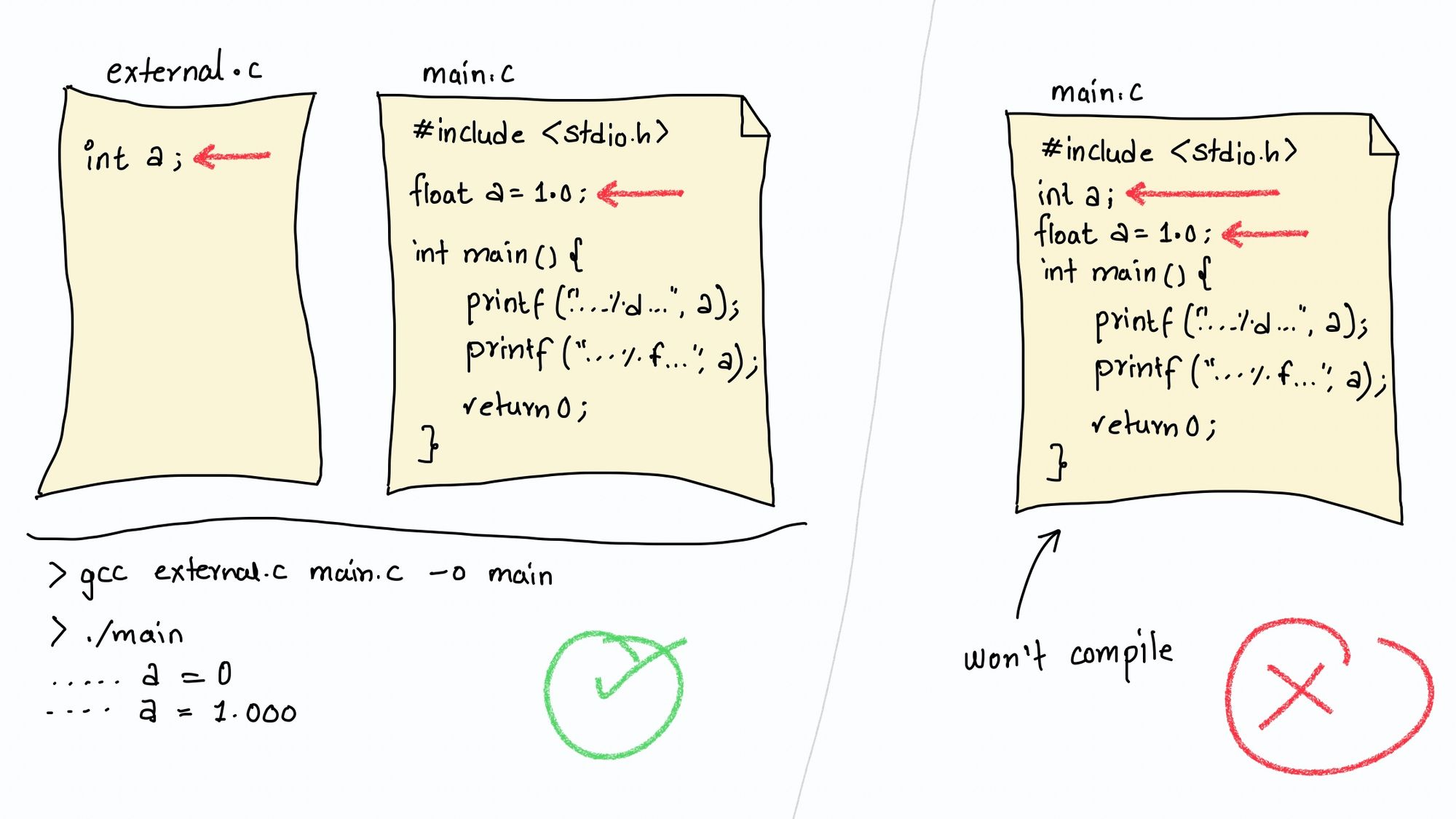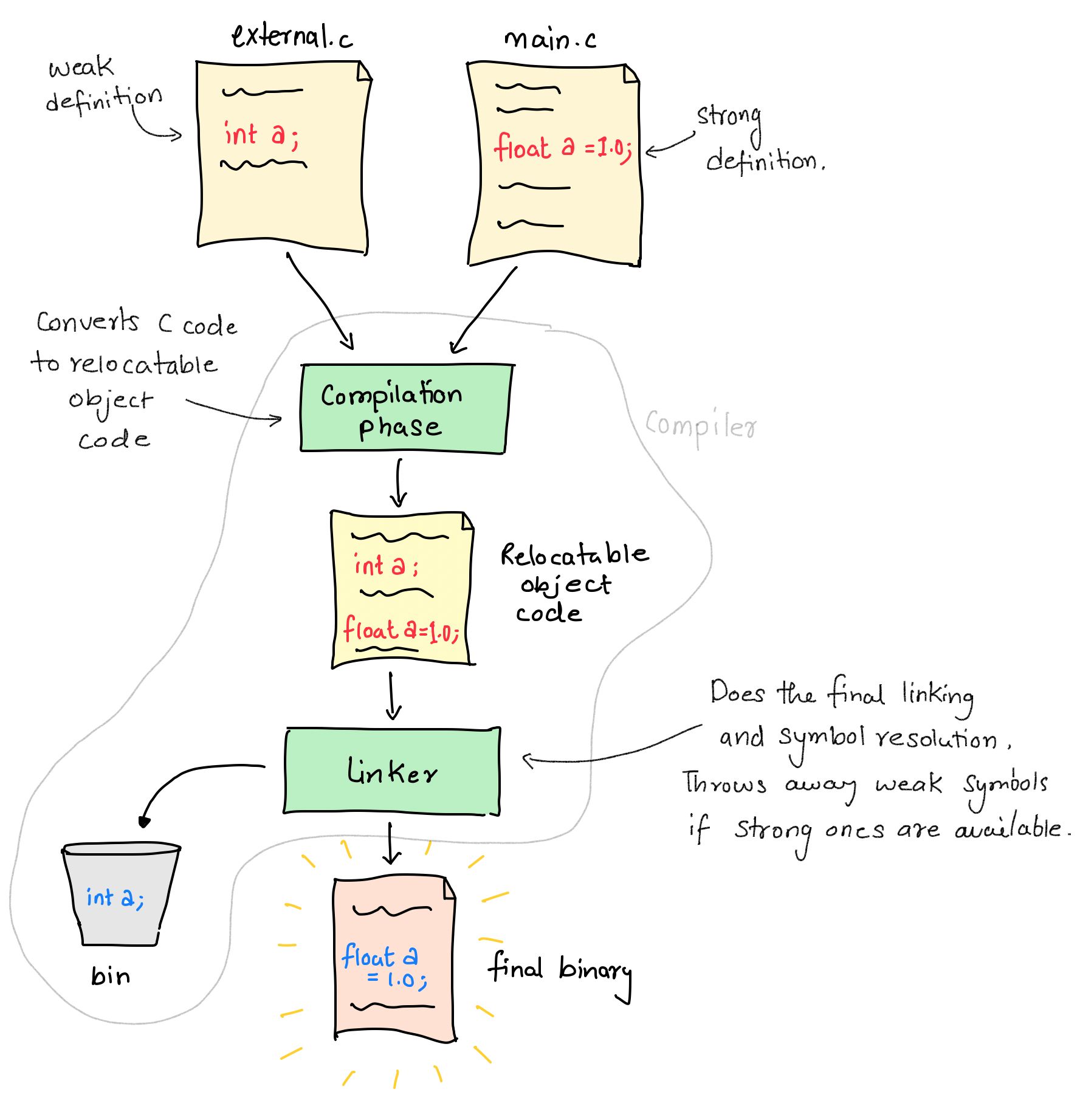Redefining Global in C! 🤔🤯
This post explores how redefinition of a symbol may be possible when using the C language.

Redefining a global variable is not allowed in C. For the most part this statement is right. Compiling the following will fail because a is redefined as a float, after having defined as an int.
#include <stdio.h>
int a;
float a = 1.0;
int main() {
printf("int? - a = %d\n", a);
printf("float? - a = %f\n", a);
return 0;
}
Compiler throws the following error -
❯ gcc main.c -o main
main.c:4:7: error: redefinition of 'a' with a different type: 'float' vs 'int'
float a = 1.0;
^
main.c:3:5: note: previous definition is here
int a;
^
main.c:8:32: warning: format specifies type 'double' but the argument has type 'int' [-Wformat]
printf("float? - a = %f\n", a);
~~ ^
%d
1 warning and 1 error generated.The compiler complains about redefinition of a. So, a cannot be redefined? 😏
Try this instead!
Move declaration of a as an int in another .c file. And retain the main.c as below -
int a;#include <stdio.h>
float a = 1.0;
int main() {
printf("int? - a = %d\n", a);
printf("float? - a = %f\n", a);
return 0;
}
Compile both the files.
❯ gcc external.c main.c -o main
main.c:6:30: warning: format specifies type 'int' but the argument has type 'float' [-Wformat]
printf("int? - a = %d\n", a);
~~ ^
%f
1 warning generated.warning? No error? Yes. It generated the binary. 😱
And it works! 🤯
❯ ./main
int? - a = 0
float? - a = 1.000000
Weak vs Strong Symbols
The quick answer is - float a is strong definition compared to int a! The linker picks float a as the final definition.
Details
A weak symbol can have multiple definitions, each associated with a different object file or library. When multiple definitions of a weak symbol are encountered during linking, the linker will select one definition to use, typically based on a priority order. The selected definition becomes the final definition of the symbol, and any references to that symbol will use that definition (as in the image below).

1.0 to a in float a = 1.0 makes the definition a strong definition! The compiler then enforces that a be treated as a float variable!The concept of weak symbols is particularly useful in cases where you want to provide a default implementation of a function or variable, but allow it to be overridden if needed.
More
What we saw in this particular case was a very specific example where the notion of weak and strong is implicitly implied based on the declaration of the variable. Compilers usually provide a way for the programmer to explicitly specify a symbol to be weak, in case of GCC, it provides the __attribute__((weak)) attribute to mark the symbol as weak.
We will discuss more on this in later posts :)

Discussion